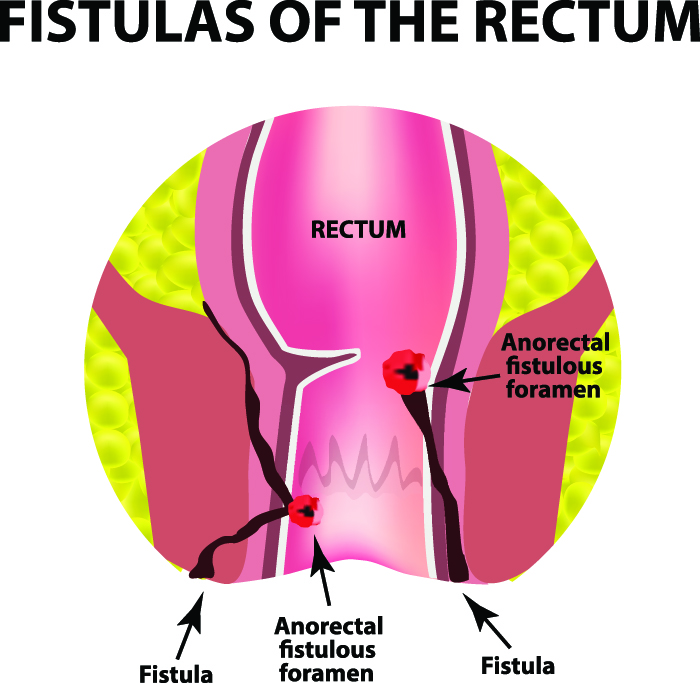Fistula Treatment & Diagnosis in Tardeo, Mumbai
A fistula is an abnormally shaped connection between two organs or one organ and a blood vessel. It is formed due to various reasons, including previous surgery, inflammation, or ulcers. Visit the best gastroenterology hospital near you for fistula treatment.

About the topic:
Fistulas are abnormal connections between sores or ulcers on the inner wall of your intestine that extend to other organs. This creates a tunnel for draining the pus-like substance near the infected area. The collection of this pus also causes fistula formations.
Types of fistula:
Fistulas are categorized into various types depending on their characteristics:
- Blind fistula: This type of fistula is open from one end and connects two organs or structures. Hence, it is called a blind fistula.
- Complete fistula: This fistula is open on both sides.
- Horseshoe fistula: This fistula is generally observed at the anus as it connects the anus to your skin’s surface.
- Incomplete fistula: This fistula is connected to an internal structure but does not have an opening and is completely closed in the shape of a tube.
What are the symptoms?
These are the symptoms associated with fistula:
- You may notice frequent pus from your anus if it is an anal fistula.
- Pain, swelling, and inflammation at the site of the fistula.
- Frequent drainage at the site of the fistula.
- Irritation and itchiness near the area of the fistula.
- Constipation and discomfort during bowel movements.
- High temperature and fatigue.
- Frequent bleeding at the site of infection.
It is better to consult your doctor if you observe any of the following symptoms.
What are the causes?
- Sometimes, the fluid-making gland inside your anus may get blocked, causing liquid buildup, swelling, and infection. This, in turn, can cause bacteria accumulation at the site of infection and ultimately form a fistula near your anus, which is referred to as an anal fistula. The liquid is called abscess by doctors in medical terminology.
- If this abscess is left untreated, it grows, penetrating outside the skin, making a hole.
- Sexually transmitted diseases can also cause the formation of fistulas.
- Tuberculosis is one more common cause of fistula formation.
- Diseases like Crohn’s or ulcerative colitis are also reasons for fistula.
When to see a doctor?
You have to visit your gastroenterology specialist immediately if you observe any of these symptoms:
- Accumulation of pus near your anus or at the site of infection.
- Frequent drainage of the abscess.
- If you experience swelling, severe pain, and inflammation, you should consult your gastroenterology surgeon immediately.
Request an appointment at Apollo Hospitals, Tardeo, Mumbai.
Call 1860 500 2244 to book an appointment.
Treatment:
To find out if you have a fistula first, your gastroenterology specialist prescribes a few tests like a CT scan or X-ray, or even Colonoscopy in the initial stages.
If your doctor observes fistula formation in your test reports, then he will prescribe surgery to remove it.
- Your surgical team will shift you to the operation room and request you to change into a hospital outfit.
- After administering general anesthesia, your doctor will make a small incision.
- Your surgeon will then move the muscles to seal the fistula from both sides and cut it.
- After a few hours of observation, your medical team will shift you into the general room.
What are the complications?
- Fistula can turn out to be fatal if you do not seek treatment at the right time.
- The fistula may keep on growing in size.
- Untreated fistulas will accumulate pus and attract bacteria.
- Bacterial accumulation may cause infections.
- The infection at one site can spread to other organs.
Conclusion:
While some fistulas are easy to diagnose and treat, few others are stubborn. It is essential to consult your general surgeon if you cannot identify the symptoms correctly to diagnose your health condition.
No. Fistulas need medical intervention. They do not heal on their own. You must consult your general surgeon as soon as you notice the above symptoms.
If you find difficulty in identifying the symptoms, you can observe the characteristics of fistula drainage to identify fistula formation. Fistula drainage is generally green in color and liquid in form.
No, antibiotics are not an appropriate cure for fistula. Your doctor will recommend surgery if he diagnoses you with a fistula.
Symptoms
Our Doctors
DR. KEYUR SHETH
DNB (Med), DNB (Gast...
| Experience | : | 7 Yeras Experience |
|---|---|---|
| Speciality | : | General Surgery & Ga... | Location | : | Chembur |
| Timings | : | Mon to Fri : 2:00 PM... |
Our Top Specialities
NOTICE BOARD
CONTACT US
CONTACT US
 Book Appointment
Book Appointment



.svg)
.svg)
.svg)
.svg)








